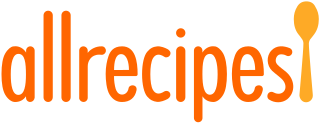
BlackBerry Limited is a Canadian software company specializing in cybersecurity. Founded in 1984, it developed the BlackBerry brand of interactive pagers, smartphones, and tablets. The company transitioned to providing software and services and holds critical software application patents.

Intuit Inc. is an American multinational business software company that specializes in financial software. The company is headquartered in Mountain View, California, and the CEO is Sasan Goodarzi. Intuit's products include the tax preparation application TurboTax, the small business accounting program QuickBooks, the credit monitoring and personal accounting service Credit Karma, and email marketing platform Mailchimp. As of 2019, more than 95% of its revenues and earnings come from its activities within the United States.

Myspace is a social networking service based in the United States. Launched on August 1, 2003, it was the first social network to reach a global audience and had a significant influence on technology, pop culture and music. It also played a critical role in the early growth of companies like YouTube and created a developer platform that launched the successes of Zynga, RockYou and Photobucket, among others. From 2005 to 2009, Myspace was the largest social networking site in the world.
Answers.com, formerly known as WikiAnswers, is an Internet-based knowledge exchange. The Answers.com domain name was purchased by entrepreneurs Bill Gross and Henrik Jones at idealab in 1996. The domain name was acquired by NetShepard and subsequently sold to GuruNet and then AFCV Holdings. The website is now the primary product of the Answers Corporation. It has tens of millions of user-generated questions and answers, and provides a website where registered users can interact with one another.
Mobile content is any type of web hypertext and information content and electronic media which is viewed or used on mobile phones, like text, sound, ringtones, graphics, flash, discount offers, mobile games, movies, and GPS navigation. As mobile phone use has grown since the mid-1990s, the usage and significance of the mobile devices in everyday technological life has grown accordingly. Owners of mobile phones can now use their devices to make photo snapshots for upload, twits, mobile calendar appointments, and mostly send and receive text messages, listen to music, watch videos, take mobile pictures and make videos, use websites to redeem coupons for purchases, view and edit office documents, get driving instructions on mobile maps and so on. The use of mobile content in various areas has grown accordingly.
MLB Advanced Media, L.P. (MLBAM) is a limited partnership of the club owners of Major League Baseball (MLB) based in New York City and is the Internet and interactive branch of the league.

Google Reader is a discontinued RSS/Atom feed aggregator operated by Google. It was created in early 2005 by Google engineer Chris Wetherell and launched on October 7, 2005, through Google Labs. Google Reader grew in popularity to support a number of programs which used it as a platform for serving news and information to users. Google shut down Google Reader on July 1, 2013, citing declining use.

Bloomberg News is an international news agency headquartered in New York City and a division of Bloomberg L.P. Content produced by Bloomberg News is disseminated through Bloomberg Terminals, Bloomberg Television, Bloomberg Radio, Bloomberg Businessweek, Bloomberg Markets, Bloomberg.com, and Bloomberg's mobile platforms. Since 2015, John Micklethwait has been editor-in-chief.
PressReader is a digital newspaper distribution and technology company with headquarters in Vancouver, Canada and offices in Dublin, Ireland and Manila, Philippines.

A paywall is a method of restricting access to content, with a purchase or a paid subscription, especially news. Beginning in the mid-2010s, newspapers started implementing paywalls on their websites as a way to increase revenue after years of decline in paid print readership and advertising revenue, partly due to the use of ad blockers. In academics, research papers are often subject to a paywall and are available via academic libraries that subscribe.
Bottlenotes is a wine community site founded in June 2005 in Palo Alto, California by Kim Donaldson and Alyssa Rapp. The original business plan was completed by Rapp with the help of classmates from the Stanford Graduate School of Business between 2003 & 2005. The site was developed as an e-commerce site that matched users’ taste preferences with wine options and was featured in numerous publications including Wine Enthusiast Magazine. It has now become a media platform with both marketing and social media capabilities. The company's use of social media and user feedback has been featured in the Entrepreneur Magazine blog, SUCCESS Magazine, and Fox News.
Issuu, Inc. is a Danish-founded American electronic publishing platform based in Palo Alto, California, United States. The company's software converts PDFs into customizable digital publications that can be shared via links or embedded into websites.
Flipboard is a news aggregator and social network aggregation company based in Palo Alto, California, with offices in New York, Vancouver, and Beijing. Its software, also known as Flipboard, was first released in July 2010. It aggregates content from social media, news feeds, photo sharing sites, and other websites, presents it in magazine format, and allows users to "flip" through the articles, images, and videos being shared. Readers can also save stories into Flipboard magazines. As of March 2016 the company claims there have been 28 million magazines created by users on Flipboard. The service can be accessed via web browser, or by a Flipboard application for Microsoft Windows and macOS, and via mobile apps for iOS and Android. The client software is available at no charge and is localized in 21 languages.
Baidu Yi, also known as "Baidu Yun", was an operating system for mobile devices until Baidu suspended it. It is based on Google's Android but is a fork by Baidu, the dominant search engine operator in China. It was announced on 2 September 2011 at the 2011 Baidu Technology Innovation Conference in Beijing.

Allrecipes.com, Inc. is a food-focused online social networking service headquartered in Seattle, Washington. The company was founded by University of Washington archaeology students Tim Hunt, Carl Lipo, Mark Madsen, Michael Pfeffer, David Quinn, and Dan Shepherd.

News360 was a personalized news aggregation app for smartphones, tablets and the web. It attempted to learn a user's interests by analyzing their interaction with news stories on the app and using semantic analysis and natural language processing to create an Interest Graph and construct a unique feed of relevant content for each user. The app claimed an audience of more than 4 million users.

NewsBlur is an American software company based in New York City and San Francisco. It runs an online RSS news reader service accessible both online and via a free open-source mobile app for offline reading. Furthermore, the software powering NewsBlur is available and is published in an open-source application, licensed under the MIT License. Limited access to the service is free for up to 64 sites; unlimited access is available for an annual subscription fee.

Apple News is a news aggregator app developed by Apple Inc., for its iOS, iPadOS, watchOS, and macOS operating systems. The iOS version was launched with the release of iOS 9. It is the successor to the Newsstand app included in previous versions of iOS. Users can read news articles with it, based on publishers, websites and topics they select, such as technology or politics.
The Information, legally the Lessin Media Company, is an American technology industry–focused business publication headquartered in San Francisco. Founded in 2013 by journalist Jessica Lessin, the publication publishes content behind a paywall that allows subscribers access to the site and access to global networking events. Lessin has stated that she aims to "build the next Wall Street Journal over the next 50 years" with the publication.









